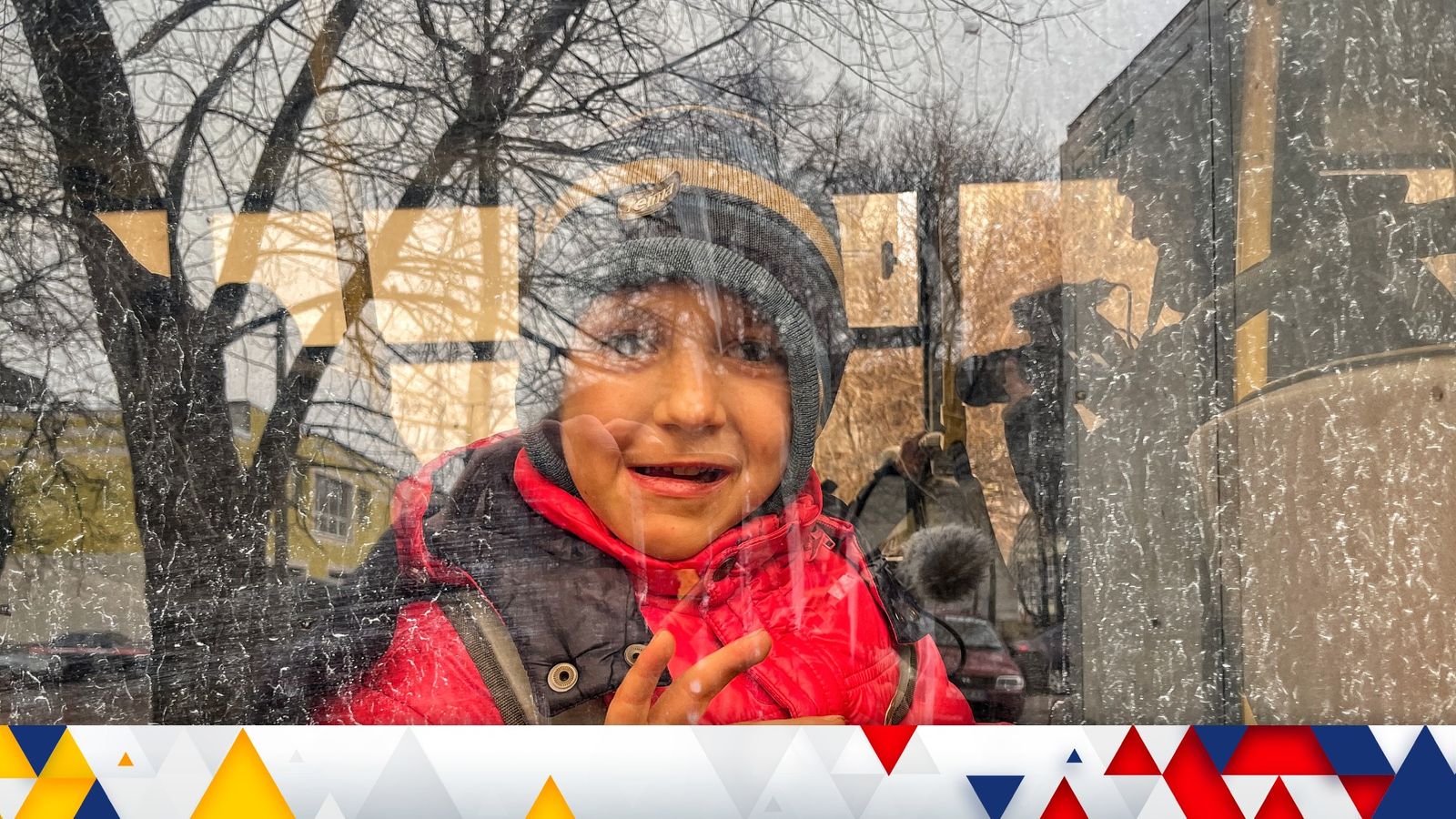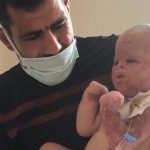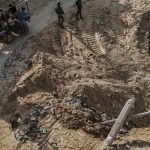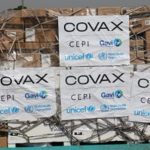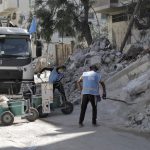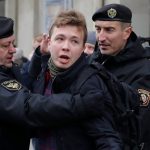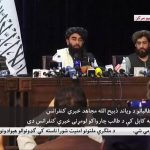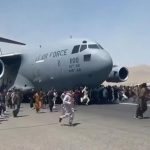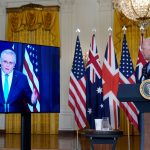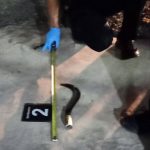The soldiers marched into Irpin with their guards up and expectations low.
The Ukrainian president might have told the country his troops had wrestled back control of the commuter town after more than a month – but they weren’t taking anything for granted.
Northwest of the capital, Irpin has been the focus of intense Russian attacks lasting day and night for more than four weeks now.
Thousands of its residents have fled under fire. Civilians, including at least one journalist, have died during this long battle.
In the words of the town’s mayor, it has been finally “liberated”.
Putin’s forces ‘pushed away’ from capital – live updates
In other developments:
• Russia to ‘fundamentally cut back’ military activity near Kyiv and Chernihiv
• Ukrainian troops ‘regaining territory’ and pushing back Russian forces
• Zelenskyy says Ukraine willing to consider neutrality and offer security guarantees
• US casts doubt on Abramovich ‘chemical’ poisoning claims
• More Russian mercenaries heading to Ukraine
“Is it free?” we asked the group of soldiers. “Maybe… so, so,” came the reply.
The sounds of shelling and artillery fire which intermittently disturbed the forests around seemed to suggest otherwise.
The town still does not feel entirely secure to those residents who’ve been hiding inside their homes throughout the battle.
Astonishingly, some residents are still emerging after nearly a month of living underground and sheltering from the almost constant blasts and explosions.
One resident, Galina Grip, told us how they’d been held captive by dozens of Russian troops, who gathered them together from several basements and loaded them all into one.
“There were about 40 of us, all in one basement,” she said.
“Then they put tanks on one side of the house and the other side, and a third in the yard.”
It seemed to the residents, they were being used as some sort of protection against Ukrainian attacks.
Her friend Alla Yhova sobbed repeatedly as she described how she’d been held at gunpoint, how the Russian troops had robbed the residents of possessions like mobile phones and stolen food from the shops.
The two women said they’d seen the troops discard their uniforms and dress in civilian clothes they stole, although it wasn’t clear if they were deserting or trying to blend in with other Ukrainians to plan further attacks.
The developments at the peace talks in Turkey come at a tremendous cost to the people of Irpin – a small town which stood in the way of the Russian advance into the capital.
But few of the soldiers entering the town as the negotiations continued had much faith in any of the agreements being upheld.
“How many times have we heard about a ceasefire,” one fighter told us. “It’s always our side which sticks to it, and then we get attacked, and we have to reply.”
Read more: Zelenskyy offers Putin a way out of war – but will Russia’s leader budge?
Follow the Daily podcast on Apple Podcasts, Google Podcasts, Spotify, Spreaker
A second tells us they don’t believe the Russians have stuck to any agreements so far.
“The first time we set up a humanitarian corridor in Irpin, they just attacked the civilian convoy,” he said.
Many believe any offer of a cessation of hostilities comes only because it has been wrung out of Russian troops beaten back on the battlefields in villages and towns around the capital.
For pensioners like Raisa Ivanivna, who has been living in her basement with her husband for more than a month, any laying down of weapons and any silencing of the guns does not come a moment too soon.
She sipped the first hot drink she’s had in weeks, given to her by kindly emergency workers. The couple have been without water, heating, gas or electricity for weeks now.
They survived by drinking water from their well as they watched their food stocks dwindle daily.
They were finally rescued the day after Irpin was declared “liberated” by the Ukrainian president.
She sobbed with big gulps of relief as she drank her hot tea. “It’s been terrible,” she said.
Alex Crawford reports from outside Irpin with camera operator Chris Cunningham and producers Chris Cunningham, Jake Jacobs, Oleksandr Piskun and Mihailo Vadimovich Cherniak
